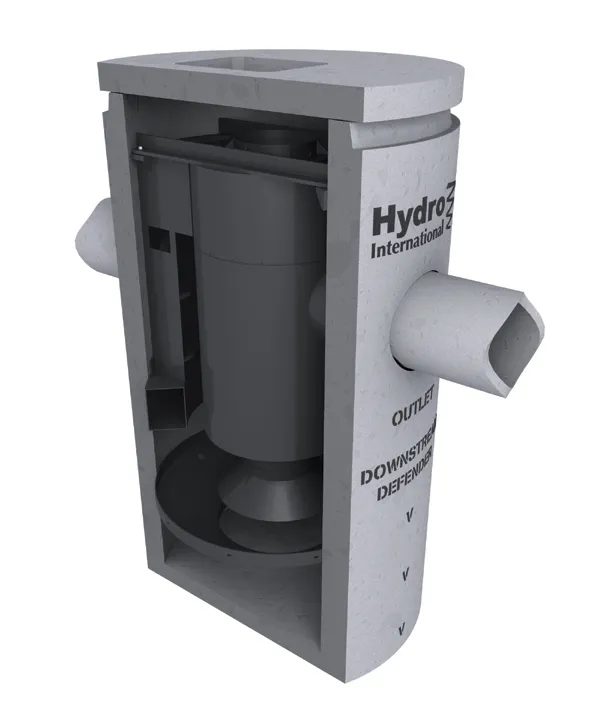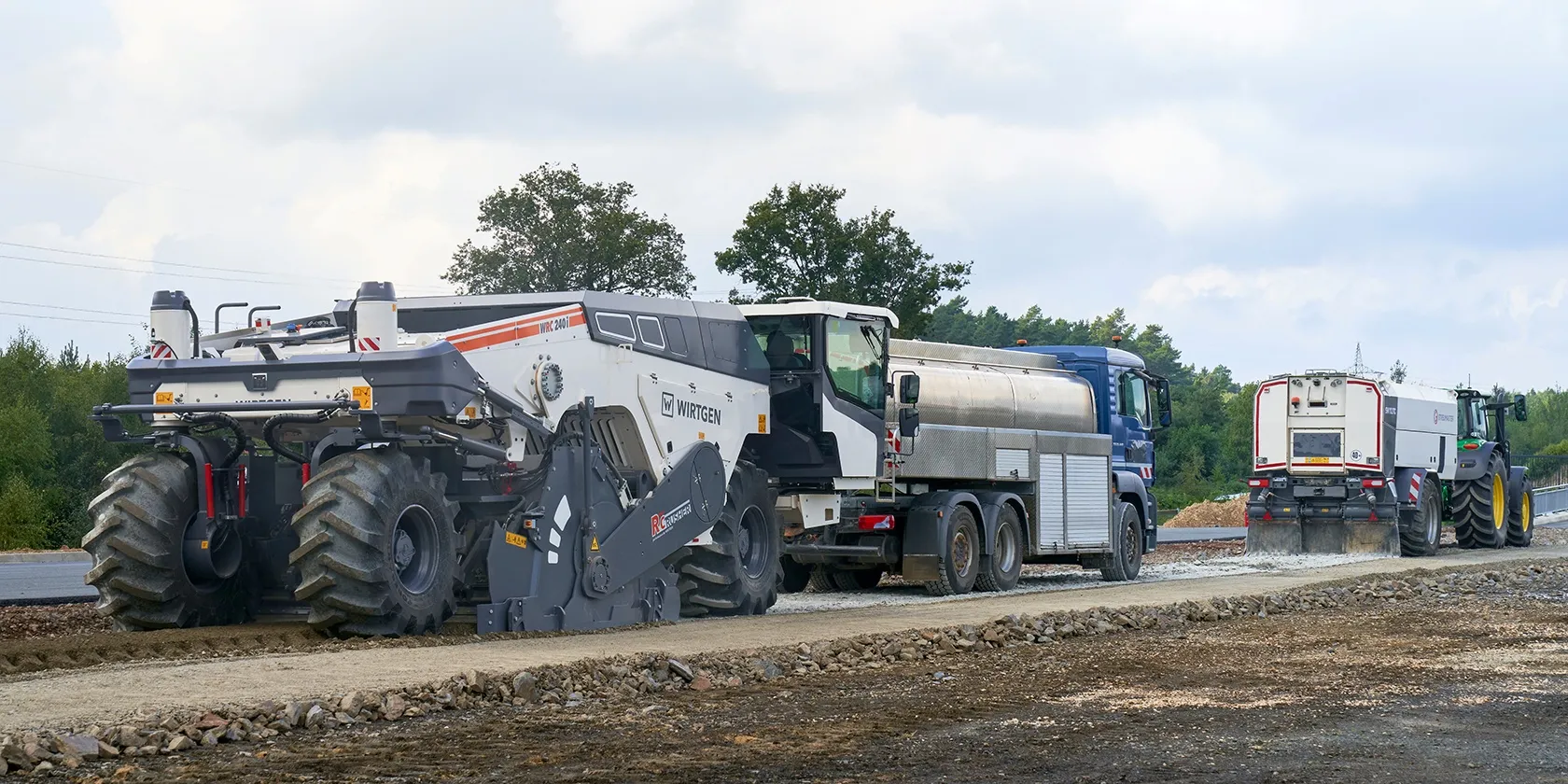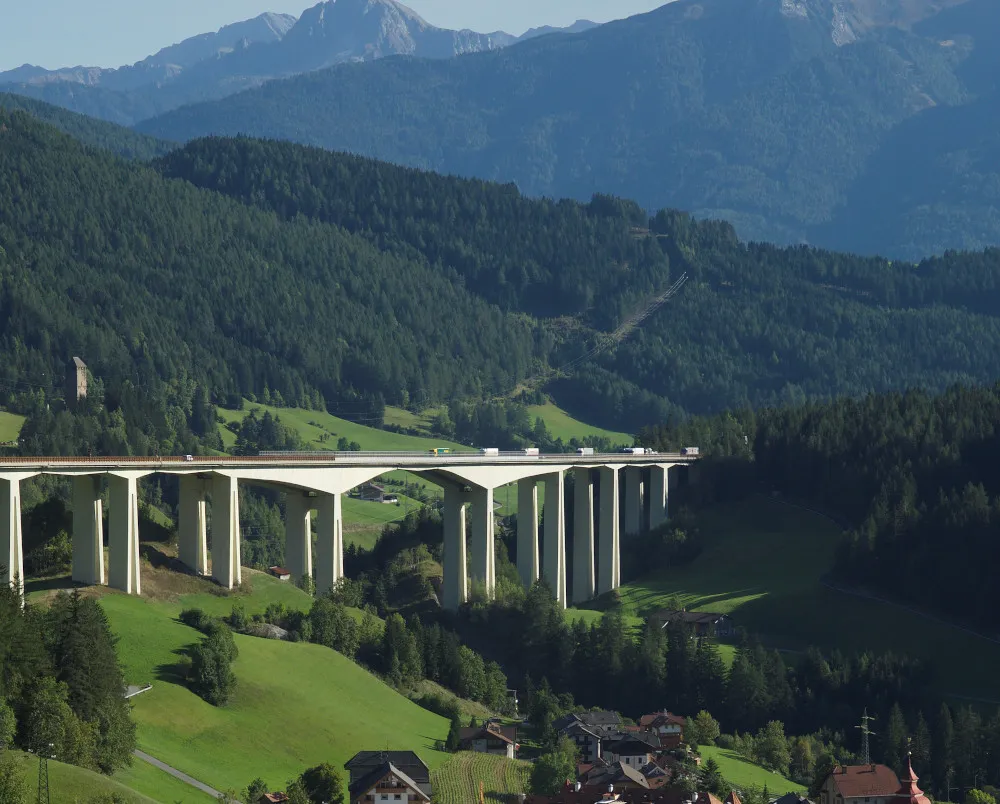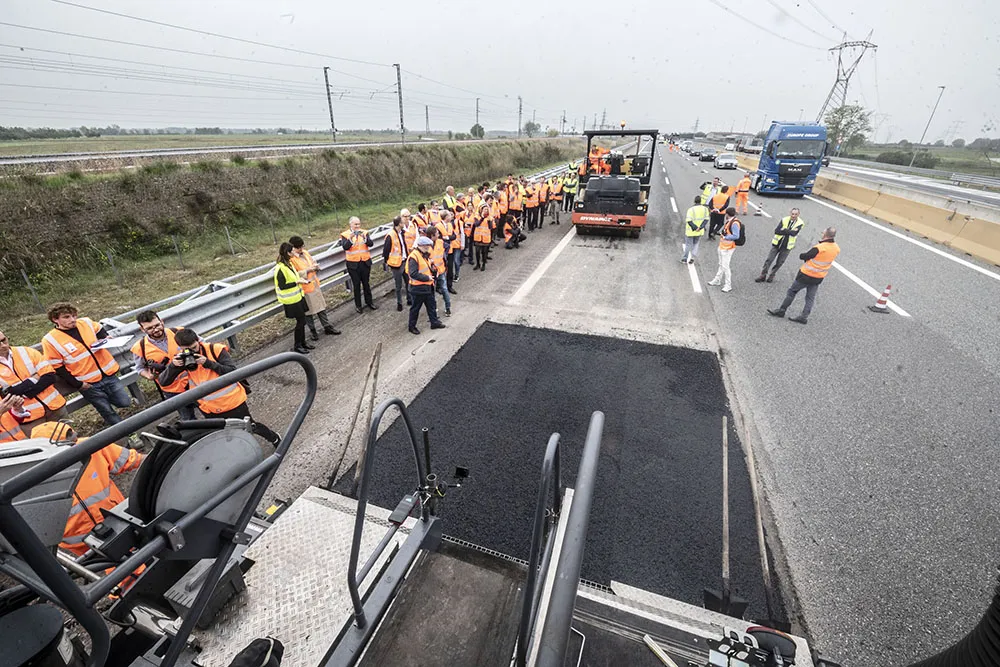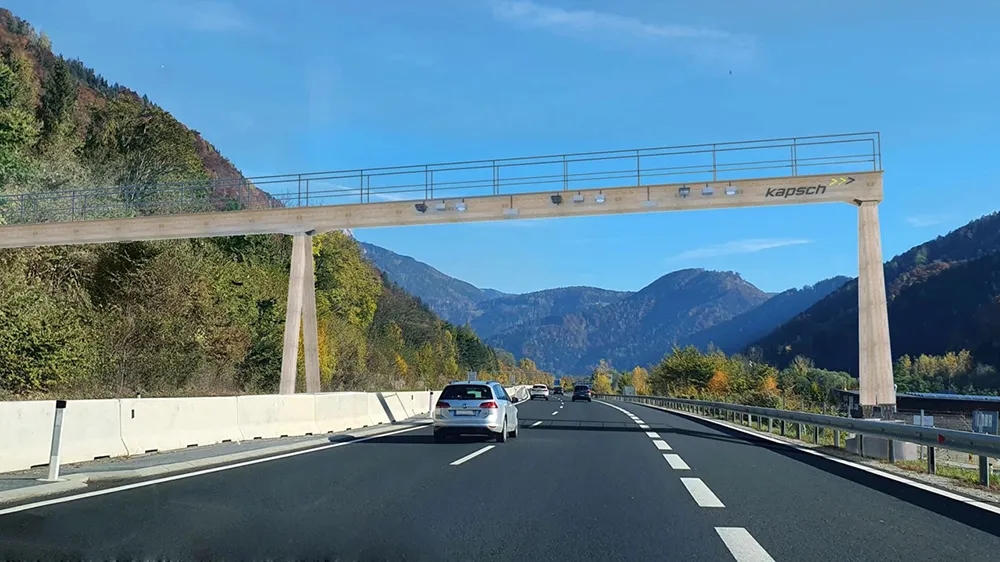
The company's Green Gantry is made from wood but can still support signs, sensors and and other traffic management hardware thanks to its modular design. Kapsch says this "allows an installation comparable to standard steel bridges and also with the same service life and maintenance intensity".
Each steel gantry creates over 30 tonnes of CO2 during its production, the company says. But the wood version "binds more than 20 tonnes of CO2 and thus has a positive carbon footprint". It also "paves the way for sustainable road infrastructure".
Kapsch says the product is protected from water, ice and snow and, even after it is dismantled, "does not pollute the environment, as no harmful chemical substances are used to treat the wood".
Katharina Rynesch, innovation manager at Kapsch TrafficCom, says the design complies with all relevant European standards. "Our road infrastructure is currently a blind spot in efforts to make the transport sector more sustainable. With our Green Gantry, we hope on the one hand to contribute to greater sustainability, but on the other hand also to demonstrate that even stablished concepts can be rethought and made sustainable."
Guaranteed for 20 years, the project is funded by the Waldfonds – The Forest Fund - an initiative set up in 2020 by Austria’s Federal Ministry of Agriculture, Forestry, Regions and Water Management. The €350 million forest fund is to financially help forest plantations and other sources of wood production It is part of the Think.Wood programme of the Austrian Wood initiative.
Meanwhile, in September, Kapsch was awarded another gantry contract. The deal was awarded by French highway concessionaire SAPN for free-flow tolling gantries including hardware and related software. It will be installed along 250km of the A13 and A14 highways, a heavily-frequented route between Paris and Caen. Kapsch says it will save 30,000 tonnes of CO2 per year.
The gantries are able to detect, identify and classify vehicles and calculate the corresponding toll fee automatically. The project is a major stepping stone in the migration from traditional plaza tolling towards free flow systems for a cleaner mobility and a seamless driving experience for the people using the A13 and A14 highways.
The first parts of the new system are expected to become operational in the second half of 2023 to allow a free flow go-live in the course of 2024.


